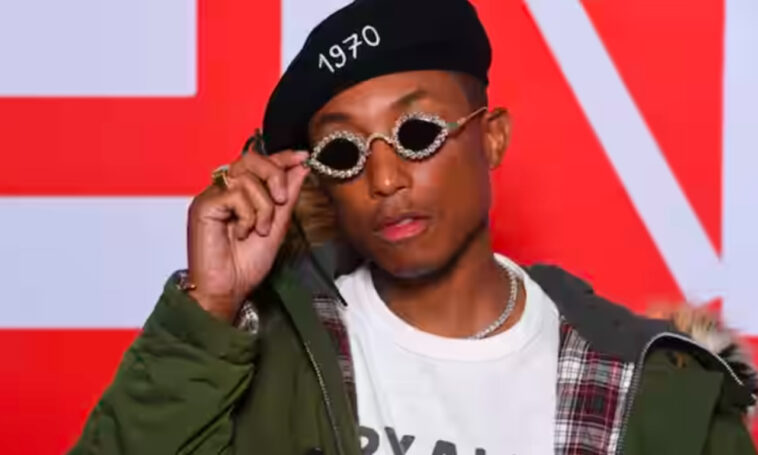Music star Pharrell Williams voices his frustration with celebrities involved in politics.
In a recent interview, music producer and fashion icon Pharrell Williams shared his candid views on celebrities and politics. Known for his influential career in music and fashion, Williams revealed his frustration with celebrities making political endorsements. His comments come as political endorsements by public figures continue to make headlines.
Williams expressed his discontent with celebrities who use their platforms to influence voters.
“I don’t do politics. In fact, I get annoyed sometimes when I see celebrities trying to tell you [who to vote for],” he said in an interview with The Hollywood Reporter.
He further elaborated on his stance, indicating that he prefers to remain out of the political spotlight.The music mogul explained his position on political endorsements more clearly. He emphasized that while he respects some celebrities who voice their political opinions, he finds others’ involvement less acceptable. “There are celebrities that I respect that have an opinion, but not all of them. I’m one of them people [who says], ‘What the heck? Shut up. Nobody asked you.’” Williams’ comment underscores his belief that celebrities should not use their fame to sway public opinion on political matters.
Williams’ viewpoint on political endorsements is particularly relevant given recent events. For instance, Taylor Swift, a prominent musician, recently endorsed Vice President Kamala Harris for the 2024 presidential election. Swift’s endorsement followed a high-profile debate between Harris and former President Donald Trump, which was widely covered in the media. In her Instagram post, Swift praised Harris as a “steady-handed, gifted leader” and expressed her intention to vote for Harris and Tim Walz.
Swift’s involvement in politics has sparked significant discussion. She used her platform to encourage her followers to research the candidates and their policies thoroughly. Her endorsement reflects a growing trend among celebrities who feel compelled to participate in political discourse, a trend that Williams clearly finds troubling.
In his interview, Williams articulated his frustration with celebrities who become highly visible in political activism. “When people get out there and get self-righteous and they roll up their sleeves and s—, and they are out there walking around with a placard: ‘Shut up!’ So, no, I would rather stay out of the way, and obviously, I’m going to vote how I’m going to vote. I care about my people and I care about the country, but I feel there’s a lot of work that needs to be done, and I’m really about the action,” he said. This quote highlights Williams’ preference for a more subdued and action-oriented approach to political engagement.
Williams’ stance contrasts sharply with the approach taken by other celebrities like Swift. While Swift uses her influence to support specific political figures and encourage voter participation, Williams advocates for a separation between celebrity culture and political activism. His perspective resonates with those who believe that celebrities should focus on their primary careers rather than entering the political arena.
The debate over celebrities’ involvement in politics is not new. Many public figures have used their platforms to endorse candidates or express political opinions, which has often led to mixed reactions from the public. Williams’ comments add to this ongoing discussion, emphasizing a desire for a clear boundary between entertainment and politics.
As the 2024 presidential election approaches, the role of celebrities in political discourse will likely remain a hot topic. With figures like Taylor Swift actively endorsing candidates and others like Pharrell Williams calling for restraint, the conversation around celebrity influence in politics continues to evolve.
Pharrell Williams’ recent remarks about celebrities and politics offer a clear perspective on the issue. While some celebrities use their fame to influence political outcomes, Williams prefers to stay out of the fray, focusing instead on his own actions and contributions. This viewpoint adds a new layer to the ongoing debate about the role of public figures in shaping political discourse.




